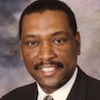01 Jun 2011 Voter ID is No Jim Crow — I Know, by Charles Butler
 Having experienced the psychological pain of Jim Crow laws firsthand, I won’t allow those who likely only read about Jim Crow in history books to trivialize it.
Having experienced the psychological pain of Jim Crow laws firsthand, I won’t allow those who likely only read about Jim Crow in history books to trivialize it.
That’s why I’m outraged about a recent edition of TV One’s “Washington Watch” in which host Roland Martin and Representative Debbie Wasserman Schultz (D-FL) compared state-level voter identification rules to Jim Crow.
To the contrary, requiring valid identification in exchange for something as sacred as a ballot is a pragmatic approach to governing.
Martin mused: “We talk about [voting being] the fundamental right [of] Americans, but to put roadblocks up to… for… voting makes no sense to me.” Wasserman Schultz replied, “now you have the Republicans, who want to literally drag us back to Jim Crow laws and literally — and very transparently — blocked access to the polls.”
It’s an insult to the intelligence and integrity of the American people, especially black Americans, to play the race card where race is not an issue.
We are required to have a state-issued driver’s license for many daily activities. Besides specifically verifying a person can operate a motor vehicle, it’s used for everything from access to buildings to birthday discounts.
In most cases, voter ID laws allow multiple forms of photo ID (including workplace ID badges), and some states even accept utility bills. When valid ID is lacking, almost all states allow provisional ballots or votes cast after someone signs an affidavit or provides personal information available on voter rolls.
I’ve been voting since 1970, and I’ve always taken my driver’s license with me to the polling place to identify myself to the election judges. It seems like a common sense thing whether it is required or not.
I find it appalling and unconscionable, if the claim is true, that 25 percent of voting age blacks lack valid government-issued photo ID. It’s not like they’re hard to get. My 12-year-old daughter got one for airport security. It would seem harder to avoid having proper identifying documentation than not these days.
The problem with liberals is they want to be paternal and involve themselves in the manipulation of black Americans’ right to life, liberty and the pursuit of happiness. If 25 percent of black Americans don’t have valid ID, they obviously don’t want one. The onus should be placed on them to obtain one. It is their personal responsibility to be productive citizens. If cost is a problem, as some claim, why aren’t deep-pocketed liberals making this problem their charity of choice?
Wasserman Schultz and Martin — born in 1966 and 1968, respectively — never had the opportunity to experience Jim Crow. They lack the credibility to discuss such an assertion much less throw it out there.
I experienced Jim Crow as a young boy travelling through the segregated South. By the time Wasserman Schultz and Martin were born, I had visited Jim Crow Florida numerous times with my father and brothers. Driving down from Detroit, we also passed through Kentucky, Tennessee and Alabama. Even though we were decent and had money, we couldn’t stop at roadside restaurants and be served like other people because we were black. We carried our food on ice in the car: fried chicken, bologna, pops, vegetables and fruit.
When we went to the movies in Pensacola or DeFuniak Springs, Florida, we had to sit in the balcony because we were black. I quit going to the movies because I refused to give the racists my father’s hard-earned money.
People such as Wasserman Schultz and Martin need to stop playing the race card in hopes of stirring up racial discontent and scoring political points. There are real issues of discrimination in this country — such as access to capital for black businesspeople and access to the financial markets for their businesses.
President Obama’s approval rankings are reflective of his policies and his cabinet — not the color of his skin — and there is no racist conspiracy to deny his supporters access to a ballot.
# # #
Charles Butler, a member of the Project 21 black leadership network, is also a talk radio host for WIND-Chicago. Comments may be sent to [email protected].
Published by the National Center for Public Policy Research. Reprints permitted provided source is credited. New Visions Commentaries reflect the views of their author, and not necessarily those of Project 21, other Project 21 members, or the National Center for Public Policy Research, its board or staff.



